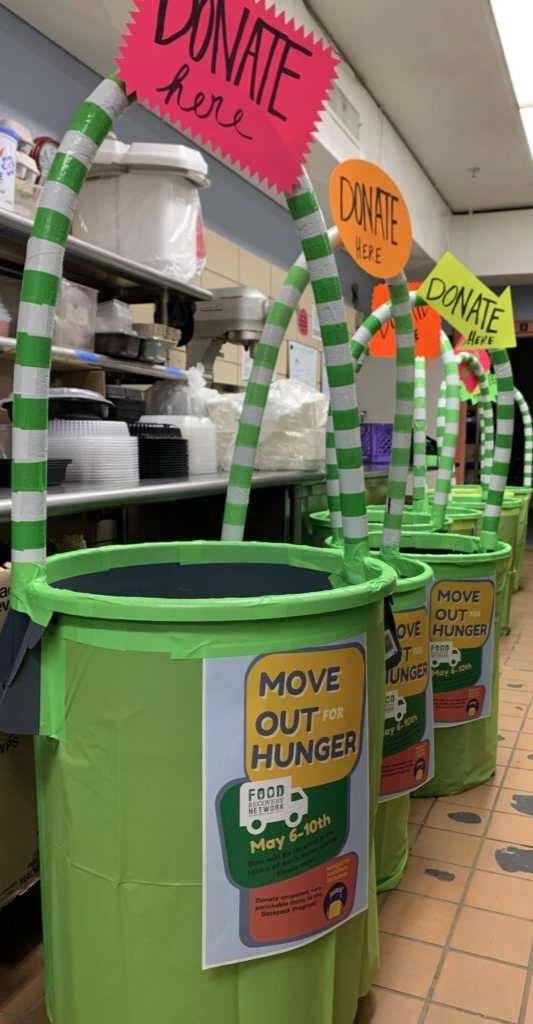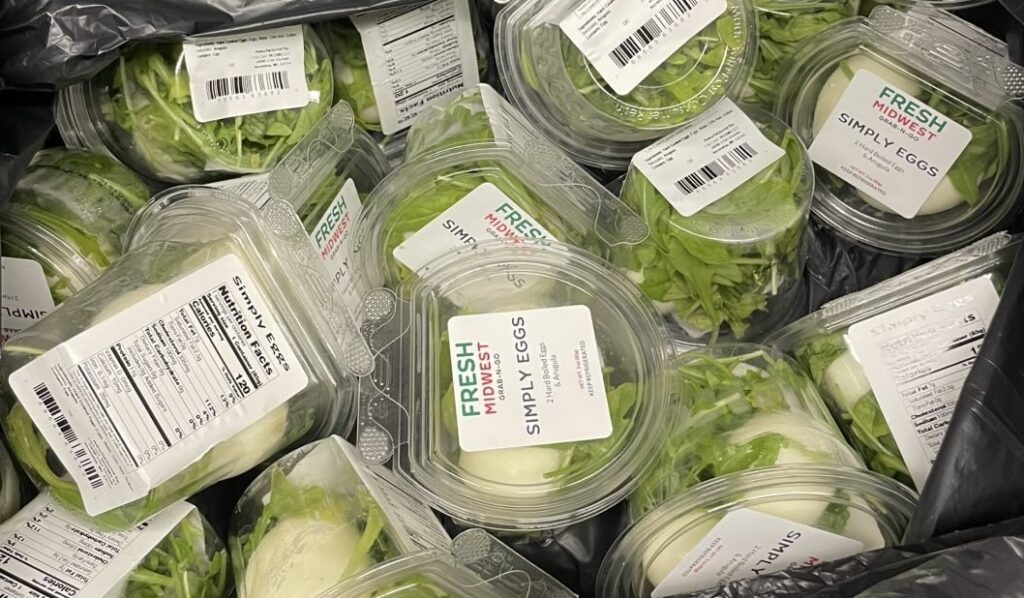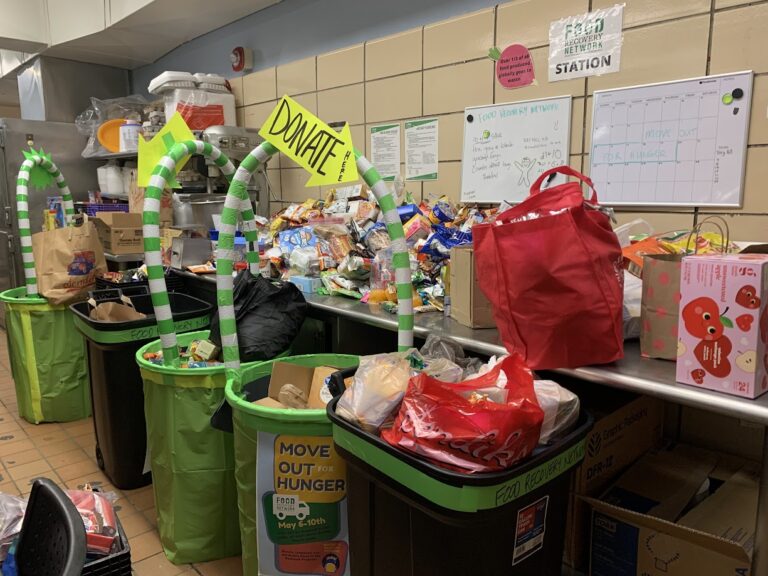At the end of each semester, Marquette’s Food Recovery Network chapter hosts Move Out for Hunger, an initiative that helps Neighborhood Kitchen programs thrive through thoughtful donations from students.
The Move Out for Hunger program started in 2020 to help reduce waste as students leave campus — food that would typically end up in a landfill is instead diverted to the campus food pantry. All residence halls, campus-owned apartments and the Arrupe Center house green donation bins for students to donate any unopened, nonperishable food items or personal care items.

Food waste is a global issue. One in six Americans are food insecure, while 40% of food waste ends up in landfills. Christine Little, manager of the Neighborhood Kitchen and campus food recovery and assistance, is helping combat the problem by using Move Out for Hunger donations to fill the needs of Marquette’s Backpack Program.
“We get a lot of snack items that we don’t usually get in through Feeding America, and we are seeing a steady increase in students using the pantry, so we don’t have an issue giving away items,” Little says. “Being able to divert food from the landfills is such an important part of caring for our world and being able to redirect it to students who may need extra support on campus is also vital.”
Student volunteers from the Food Recovery Network like Taylor Jacobsen, a junior in the College of Business Administration, was inspired to volunteer through firsthand experience.

“I noticed a lot of food waste around the Marquette campus. Having the donation bins so accessible in the lobby of my dorm convinced me to donate the food I had leftover rather than letting it go to waste my freshman year,” Jacobsen says. “Once I found out the Food Recovery Network existed, I wanted to be a part of it to help the community.”
Students who volunteer their time and effort are not the only ones taking action to prevent food waste and aid in recovery measures. Departments across campus offer their energy and resources toward the initiative, as well.
“We are very fortunate to have the support of Marquette Facilities, Planning and Management to help us collect the bins at the end of the week. Students check on them throughout the week, but it can still be hard to stay on top of since there are so many and it also happens during finals,” Little says. “Sorting all the donations is also time consuming and happens after students leave campus. Last year staff from the Office of Student Development helped sort donations which was helpful.”
The Food Recovery Network ensures food waste reduction beyond Move Out for Hunger — students work year-round to collect leftover food items from campus dining halls to donate to the food pantry. Since the network started in 2019, over 13,000 pounds of food have been recovered and provided to the community.
“Students should make an effort to donate to this program because they are directly helping out the community,” Jacobsen says. “If you’ve been wanting to help and get involved in the community but you don’t know how, donating to these bins will help people in food scarcity.”



